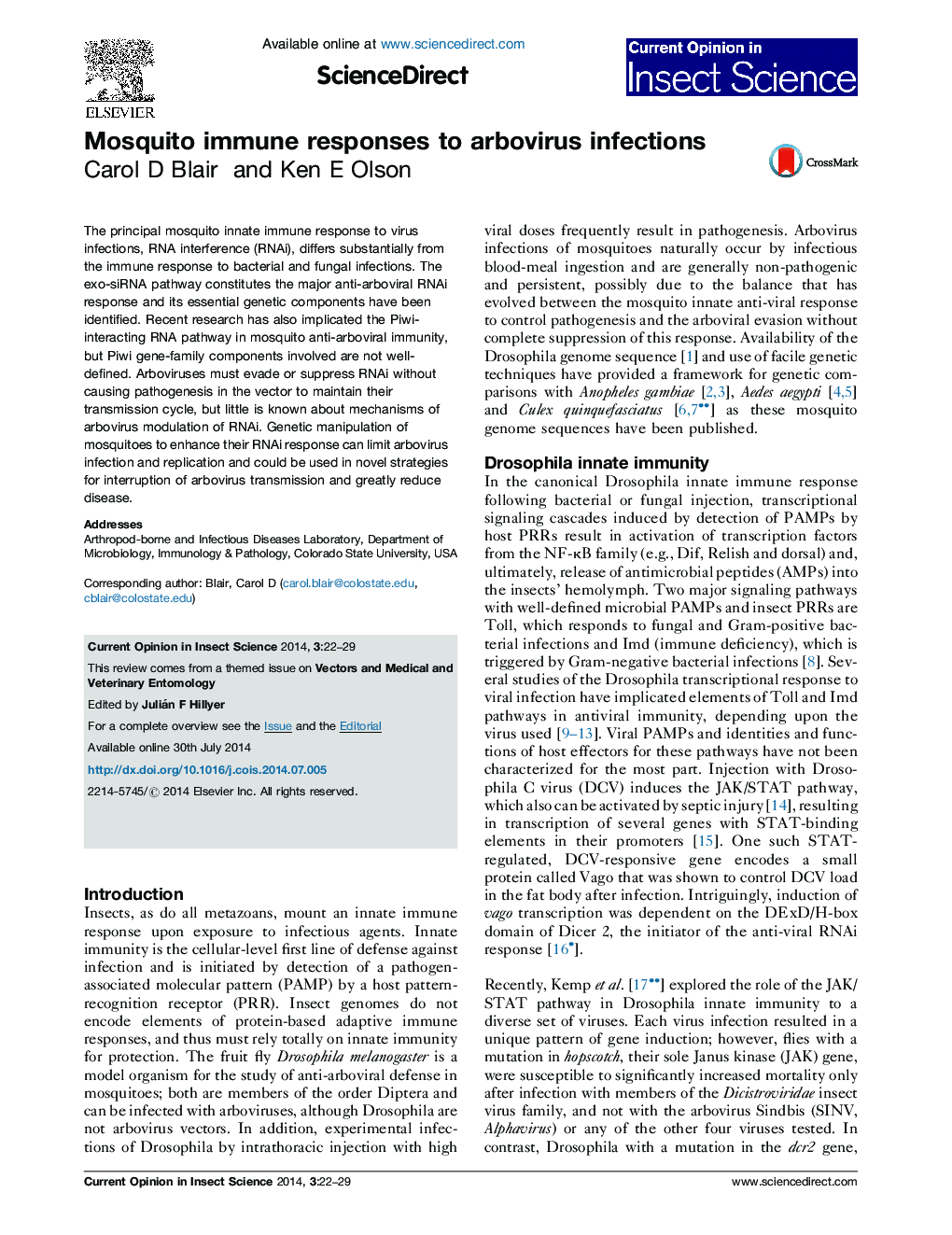| Article ID | Journal | Published Year | Pages | File Type |
|---|---|---|---|---|
| 4508272 | Current Opinion in Insect Science | 2014 | 8 Pages |
•RNA interference (RNAi) is the major mosquito immune response against arboviruses.•The exo-siRNA pathway plays the key role in anti-arboviral immunity.•The piRNA pathway also evidences involvement in anti-arboviral immunity.•Arboviruses must evade mosquito RNAi to maintain transmission cycles.•Genetic manipulation of RNAi can be used to generate arbovirus-resistant mosquitoes.
The principal mosquito innate immune response to virus infections, RNA interference (RNAi), differs substantially from the immune response to bacterial and fungal infections. The exo-siRNA pathway constitutes the major anti-arboviral RNAi response and its essential genetic components have been identified. Recent research has also implicated the Piwi-interacting RNA pathway in mosquito anti-arboviral immunity, but Piwi gene-family components involved are not well-defined. Arboviruses must evade or suppress RNAi without causing pathogenesis in the vector to maintain their transmission cycle, but little is known about mechanisms of arbovirus modulation of RNAi. Genetic manipulation of mosquitoes to enhance their RNAi response can limit arbovirus infection and replication and could be used in novel strategies for interruption of arbovirus transmission and greatly reduce disease.
